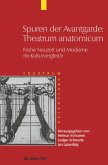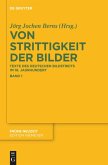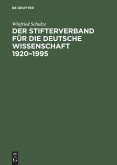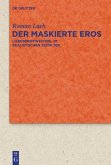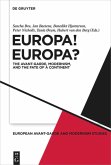Excerpt Open publication
This book discusses research on the culture of postwar Germany (1945â??1962), a topic that has become increasingly complex in recent years. Virulent topics such as war, destruction, homecoming, flight, expulsion, guilt, daily life, religion, etc., are explored systematically, using examples and by focusing on fiction, nonfiction, and film in the two German states. Historians and scholars in the field of literature and film have contributed to this compendium. They address various core questions concerning aesthetic representation and the formation of contemporary history.
Das Handbuch erschließt die in den letzten Jahren zunehmend komplexer werdende Forschung zur Kultur im Nachkriegsdeutschland (1945-1962). Virulente Themenkomplexe wie Krieg, Trümmer, Heimkehr, Flucht, Vertreibung, Schuld, Alltag, Religion usw. werden anhand exemplarischer Werke systematisch aufgearbeitet, wobei fiktionale Literatur, Sachbuch und Film in beiden deutschen Staaten im Mittelpunkt stehen. Das Kompendium wurde von Historikern, Literatur- und Filmwissenschaftlern erarbeitet und beantwortet maßgebliche Fragen zur ästhetischen Repräsentation und Formation von Zeitgeschichte.
This book discusses research on the culture of postwar Germany (1945â??1962), a topic that has become increasingly complex in recent years. Virulent topics such as war, destruction, homecoming, flight, expulsion, guilt, daily life, religion, etc., are explored systematically, using examples and by focusing on fiction, nonfiction, and film in the two German states. Historians and scholars in the field of literature and film have contributed to this compendium. They address various core questions concerning aesthetic representation and the formation of contemporary history.
Das Handbuch erschließt die in den letzten Jahren zunehmend komplexer werdende Forschung zur Kultur im Nachkriegsdeutschland (1945-1962). Virulente Themenkomplexe wie Krieg, Trümmer, Heimkehr, Flucht, Vertreibung, Schuld, Alltag, Religion usw. werden anhand exemplarischer Werke systematisch aufgearbeitet, wobei fiktionale Literatur, Sachbuch und Film in beiden deutschen Staaten im Mittelpunkt stehen. Das Kompendium wurde von Historikern, Literatur- und Filmwissenschaftlern erarbeitet und beantwortet maßgebliche Fragen zur ästhetischen Repräsentation und Formation von Zeitgeschichte.


